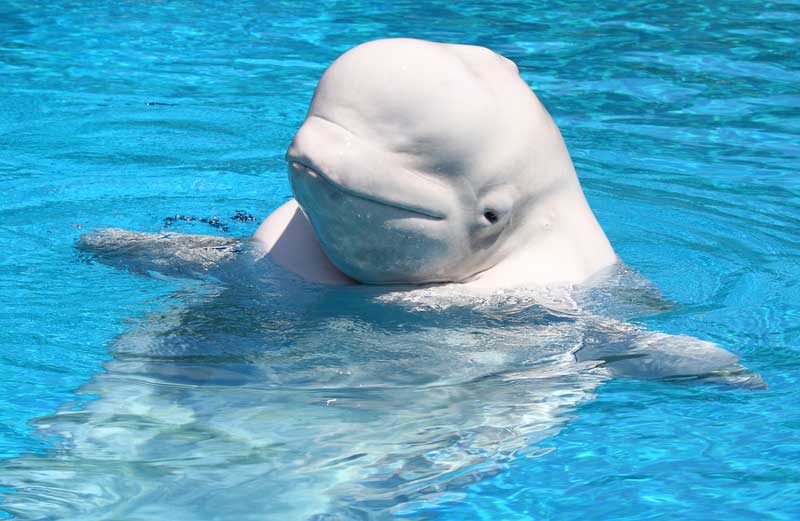Georgia Aquarium Denied Permit to Import Beluga Whales

Federal authorities have denied the Georgia Aquarium a permit to import 18 beluga whales from Russia, citing concerns about the species' wild population and the way in which these marine mammals were captured.
The sweeping U.S. Marine Mammal Protection Act, passed in 1972, bans taking dolphins, seals, whales and other marine mammals from the wild, but American institutions can apply for permits to remove these creatures from their habitats or import them for the purpose of public display.
The Georgia Aquarium's request to do just that marked the first such application in more than 20 years. (The new arrivals in today's aquariums are typically rescued animals or ones that have been bred in captivity.)
The Georgia Aquarium wanted to feature the white whales from Russia at its own marine park in Atlanta and at partner facilities, including SeaWorld's various locations.
But the National Oceanic and Atmospheric Administration's (NOAA) Fisheries Service denied the request this week. They agency received some 9,000 public comments on the request, many of them against bringing the whales into captivity.
The belugas were rounded up in Russia's Sea of Okhotsk between 2006 and 2011, NOAA says, and there is "little reliable scientific information" about the stock of whales in this population. The agency also noted that five of the beluga whales the aquarium wanted to import might have been still nursing when they were captured. What's more, NOAA argued that granting the permit could increase the demand to capture beluga whales, which could hurt the wild population.
"We believe the ongoing live-capture trade since 1989 may have contributed to a cumulative decline over the past two decades, and we considered this in combination with other past, present and foreseeable future actions," a statement from NOAA said.
Get the world’s most fascinating discoveries delivered straight to your inbox.
Beluga whales are listed as near threatened by the International Union for Conservation of Nature (IUCN). They are found in the arctic and subarctic waters of Russia, Greenland and North America and they face threats including ship strikes, pollution and habitat destruction, according to NOAA.
Follow Megan Gannon on Twitter and Google+. Follow us @livescience, Facebook & Google+. Original article on LiveScience.com

 Live Science Plus
Live Science Plus





